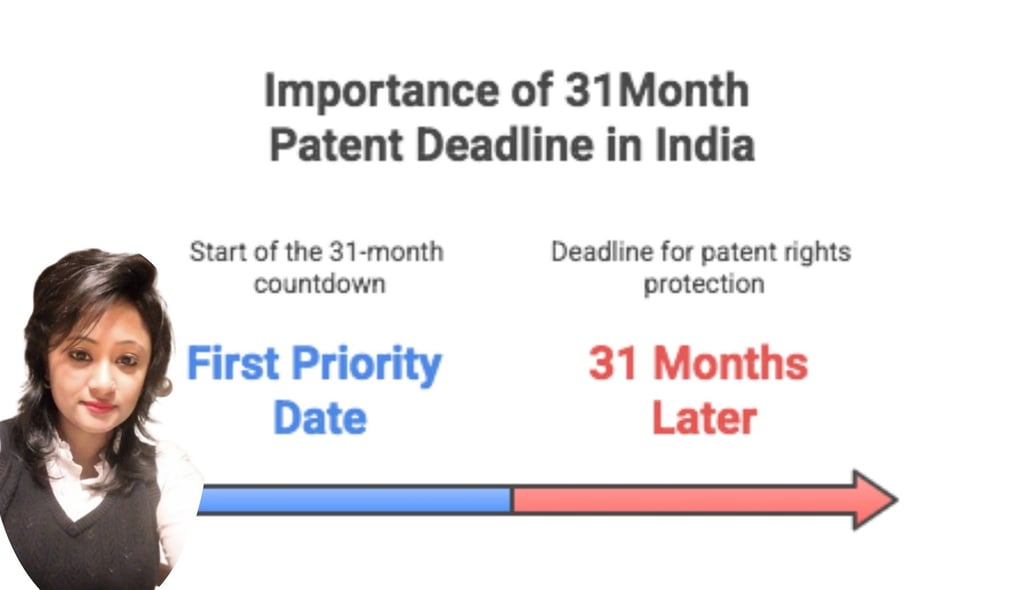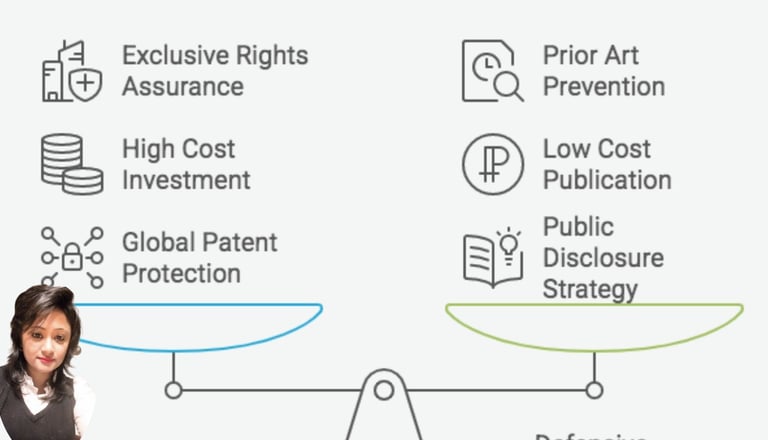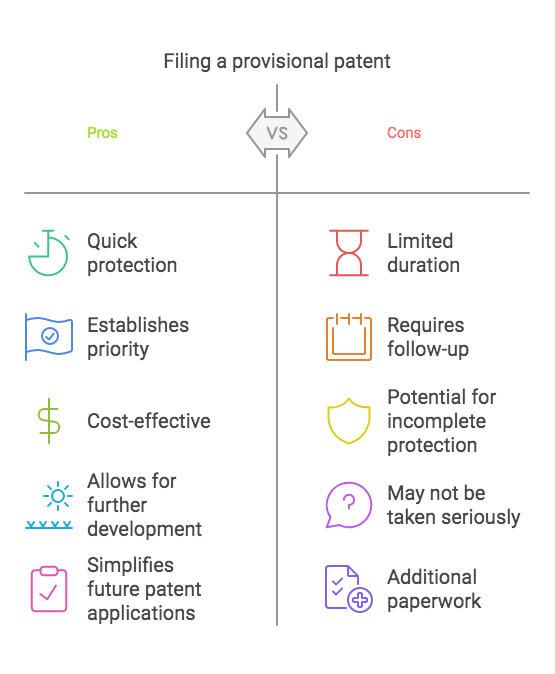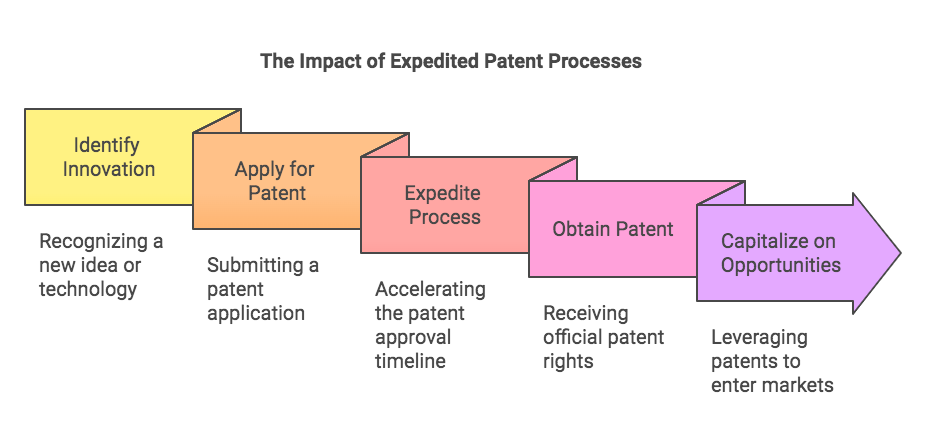🛡️ Protect your ideas and inventions with the guardians of intellectual property.
⚖️ Our team of expert patent attorneys marshals your innovations through the complex patent landscape💡
🧬 Patent Search Hack: The 7 CPC Codes Every Virus-Diagnostic Inventor Should Bookmark in 2025 and Beyond...
Monday, 3rd Day of November, 2025
Developing the next qPCR panel, CRISPR-based SHERLOCK assay, or nanopore kit for viral/bacteriophage DNA/RNA?
Seven ultra-specific CPC sub-groups to look for ....Add them to your freedom-to-operate, invalidity or landscape search today and cut noise by up to 92 %.
C12Q1/701 – “Specific hybridisation probes”
When your bio* based research zeroes-in on the probe sequence itself (PNA clamps, LNA blockers, dual-quench probes, etc.) and the target is viral/phage.
C12Q1/6869 – Viral NA amplification
RT-PCR, RT-LAMP, RPA, NASBA, TMA—if you amplify viral RNA/DNA, this is your primary bucket.
C12Q1/6876 – Viral NA hybridisation without amplification
Classic Northern, FISH, micro-arrays, direct dot-blots.
C12Q1/6888 – Sequencing or fragment analysis of viruses
NGS, Sanger, nanopore, Illumina, RFLP, capillary sizing—anything that reads the actual sequence.
C12Q1/689 – CRISPR-guided viral detection
SHERLOCK, DETECTR, FELUDA, HUDSON—Cas12/Cas13 programmed with a viral guide RNA.
C12Q1/6895 – Multiplex virus panels
One tube, two or more viral targets (e.g. COVID-Flu-RSV triplex).
C12Q1/70 – Generic fallback
All seven map back to C12Q1/68 in the old IPC scheme—still searched by CNIPA, JPO and INPI, so include both CPC + IPC in your query string.
Bonus REVIEW
Novel enzyme? Layer on C12N9/xx.
New viral vector? Add C12N7/xx.
Microfluidic cartridge? Tag B01L3/xx or G01N35/xx.
SAMPLE STRING: (CPC = C12Q1/701 OR C12Q1/6869 OR C12Q1/6876 OR C12Q1/6888 OR C12Q1/689 OR C12Q1/6895 OR C12Q1/70) AND (virus OR viral OR bacteriophage OR phage)`


Provisional Patent vs Non Provisional Patent
Supporting Claim Breadth in Non-Provisional Applications in the USPTO and India
During patent prosecution, patent examiners in the USPTO and India often reject patent claims as overly broad or unsupported. The provisional’s patent description must provide a "written description" that enables the invention’s scope. If the provisional patent lacks detail, amendments to broaden patent claims in the non-provisional application may be deemed unsupported, limiting the protection.
A comprehensive provisional patent description ensures flexibility to adjust claims while maintaining validity in both the USPTO and India.
Filing a Complete Non-Provisional Patent Application with Patent Claims
When a company publishes details of their invention in a way that makes it publicly available, it creates "prior art." This prior art prevents others from obtaining patents on that same invention. In India, publications can be made through various channels including:
The Indian Patent Office's official journal
Technical journals and publications
Company websites or technical disclosure bulletins
Academic papers or conference proceedings
The first step is to file a complete patent application, also known as a non-provisional application or complete specification, depending on the country. This application should include a set number of patent claims.
In India, for instance, there is no additional fee for filing up to 10 patent claims.
However, if you exceed this number, such as when filing before the PCT ( Patent Cooperation Treaty) within 12 months to increase the timeline to file in other countries, you will incur additional fees.
For example, if you file 20 patent claims before WIPO, there are no extra fees beyond the basic fee structure. Typically, PCT applications may contain 20 claims, with claims 1 to 10 covering systems and claims 11 to 20 covering methods.
While there is no strict rule regarding how many claims should be allocated to each category, it largely depends on the technology involved and how comprehensively it can be covered in the patent claims.
International Companies are increasingly filing via PCT route in India
Companies are increasingly filing via PCT route in India because it gives them 30/31 months from the priority date to make decisions about which countries they want to pursue patent protection in.
By filing through PCT but deliberately not filing a Request for Examination (RFE) in India, companies are creating an interesting competitive dynamic.
India's patent laws require that an RFE must be filed within 48 months from the date of priority. If no RFE is filed, the application is considered withdrawn. However, the PCT application's technical contents become public after 18 months from the priority date.
The new RFE 31 months deadline applies to patent applications filed on or after March 15, 2024. For applications filed on or before March 14, 2024, the due date will remain 48 months from the earliest patent priority date.
The International company gets the benefit of defensive publication through their PCT application becoming public, effectively preventing others from patenting the same invention in India.
They maintain the option to file patents in other key markets where they see more value in enforcement.


Provisional Patent Case Study: Consider a biotech startup that filed a provisional patent with a cursory description of a novel gene-editing method. During prosecution, the examiner in the USPTO rejected claims as anticipated by a later-published study.
The startup’s provisional lacked specifics on the method’s steps, rendering it ineffective as prior art. A more detailed provisional, including experimental data and variants, could have preempted this challenge, securing broader protection in both the USPTO and India.




While India represents a huge market opportunity, many companies find that the cost and uncertainty of patent litigation in India outweighs the benefits of patent protection.
While both patent claims and descriptions are essential components of a patent application, descriptions often take precedence during patent examination due to their role in clarifying the invention details better, and facilitating comparisons with prior art cited by the patent examiner.
Bonus Tip for Patenting: Remember, you can't add new information to your patent invention after you file it, so it's better to include too much detail than too little. Think of everything someone might need to know to understand and make your invention work.
Disclaimer: This information is provided for general educational and informational purposes only and does not constitute legal advice or opinion. The content discussed regarding defensive publication strategies, Patent Cooperation Treaty (PCT) filings, and patent examination requests in India represents general observations of potential intellectual property strategies and should not be relied upon as definitive guidance for any specific situation.
Our team
Our strength lies in our individuality. Set up by Advocate Prity Khastgir, the team is dedicated to empowering innovators by simplifying the patent process and ensuring that startups and small businesses can secure their inventions quickly and efficiently.
We focus on facilitating rapid access to patent protection, allowing our IP clients to take advantage of their innovations and succeed in a competitive landscape. With our extensive IP expertise in the fast-track patent process, we are committed to nurturing a dynamic environment of creativity and entrepreneurship, helping our clients bring their ideas to life.


Adv. Prity Khastgir
Registered Patent Attorney since 2007


Adv. Shweta Shalini
Senior Associate


Yashvendra Pandey
Head, Operations
Patenting in India & US
Expert patent searches for innovative business solutions by international patent lawyers and registered patent agents having expertise to perform different patentability searches.
The materials on this website are made available for informational purposes only, and do not constitute legal advice. The receipt of information contained on this website does not create an attorney-client relationship.
PATENT Value PROPOSITION
+91-9312315656
SATELLITE OFFICES
Intellectual Property Rights SERVICES


IT CORNER GLOBAL SERVICES
© 2017-2026 and BEYOND. All rights reserved.
Unauthorized copying, reproduction, distribution, or commercial use of this content is prohibited. The views and analyses expressed herein regarding China, India, and Foxconn are proprietary and may not be reproduced without explicit written permission from the copyright holder. Infringement will lead to legal action under #DAO.
#TelecomPatents #InnovationInTelecom #PatentStrategy #IntellectualProperty #TelecomSector #Foxconn #PatentDrafting #EssentialPatents #ChinaTelecomStrategy #IndiaIPR #IPRInTelecom #TelecomInnovation #SustainableTelecom #FutureOfTelecom #DigitalInfrastructure #PatentLandscape #GlobalTelecom #IntellectualCapital #TelecomResearch #PatentQuality #TelecomSustainability #TechPatents #TelecomManufacturing #IPRManagement #TelecomEngineering #PatentFiling
